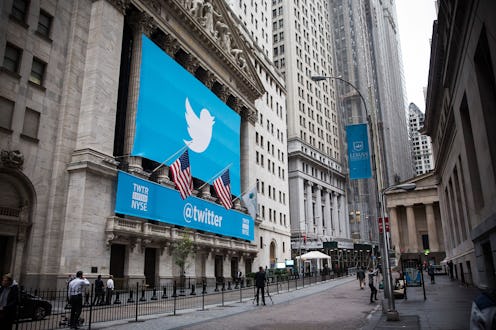Books
This Week, Writers Take Over Twitter
I waited for the second Twitter Fiction Festival with unabashed excitement. Writers occupying Twitter with stories? What could be better? Unfortunately, like much of social media, the idea is innovative, modern, and a little bit anti-Establishment — but the reality is information overload central and, well, messy.
The premise behind Twitter Fiction Festival is ambitious. The Association of American Publishers and Penguin Random House have teamed up with Twitter for the event, wherein authors will be live-tweeting short stories in 140-character installments at specified times during the week. (You can catch the official Twitter Fiction Festival schedule here.) And since social media is basically one big democracy of those with wifi connections, anyone with a story in their fingers and a dream in their hearts can play along with the handle #TwitterFiction.
Ah, it sounds so great. Fiction for the masses! Plot twists for the hashtaggers! A Twitter trend more literary than #SpringBreakBooks! Unfortunately, the ensuing chaos of out-of-order Tweets— not to mention those using the hashtag for self-promotion or to shout about their favorite novels — shows that Twitter is perhaps not so conducive to the literary arts as it wants to be.
The problem is that the structure of the event is inherently frustrating to readers. The 140-character limit is a false one, because authors can make their stories as long and rambling as they want — they simply release the stories 140 characters at a time. This means that the Festival isn't a celebration of taut micro-fiction, but simply an exercise in reading in reverse. (If you're looking for good 140-character fiction, I recommend Nanoism, a well-curated online literary magazine that publishes the shortest of short stories.)
Even worse, the format of a Twitter feed just isn't conducive to reading longer narratives, because unless you're following along in real time (and who has that much real time?), you have to scroll down to the first Tweet of the story (bypassing all sorts of retweets and "Thanks, glad you liked it!" comments from the author as you go), and then read your way back up. If you're not careful, you'll catch the last line of the story before you ever know how it begins.
What the Twitter Fiction Festival gets right, though, is a sort of gratuitous storytelling joy. There's a goofiness to the work being produced. Just look at Katie Fforde's shamelessly Bridget Jones-esque story about a 20th blind date, or Anthony Marra's tale of a lustful Mr. Bates from Downton Abbey.
They're silly, culturally familiar, and retweetable. You can check out the other Twitter followers who are digging the story right along with you. And if you can manage to find the point where the story begins, your Twitter feed will momentarily become a thing of escapism, if not a haven of high art.
Plus, you can occasionally find, amid the thousand of hashtagged tweets, a 140-character story that stands on its own. Maybe it's a sharp observation about life as we know it, maybe it's simply a fully-realized scene captured in the barest of words. Either way, it's like stumbling across a needle in a haystack. But isn't that so Twitter, anyway?
